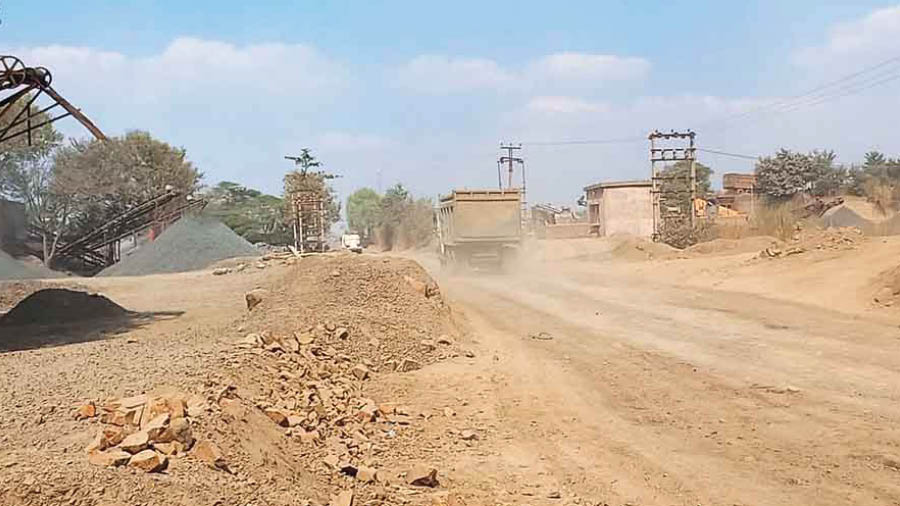Nearly 200 countries on Wednesday clinched a deal that called for a “transition away from fossil fuels”, the primary reason for the planet’s climate crisis, at the UN climate summit here, a development described as "landmark" by negotiators but criticised by several activists for its lack of clarity.
The words “fossil fuel” became part of the final document of the first Global Stocktake deal, being termed the UAE consensus, at the COP28 for the first time in almost three decades of such negotiations, which called for its transition in a “just and equitable” manner.
Adopted after nearly two weeks of hectic negotiations, it urges countries to accelerate efforts towards the phase-down of unabated coal power, which is a climbdown after India and China strongly resisted the singling out of coal.
As COP28 president Sultan al-Jaber gavelled through the agreement, the room full of negotiators at the annual Conference of Parties (COP) to the United Nations Framework Convention on Climate Change burst into applause.
Ironically, the decision came at a climate summit that was held in a country which is a global major in terms of producing fossil fuel.
While al-Jaber called the unanimous final decision “comprehensive and historic”, climate experts pointed out that the draft was far too weak compared to what science mandates to save the world and humanity with no real and immediate solution to keep global temperatures within limits.
The final draft of the Global Stocktake says that fossil fuels need to be replaced with clean energy to reach global net-zero emission by 2050 by tripling renewable energy capacity globally and doubling the global average annual rate of energy efficiency improvements by 2030. The text, however, is sketchy on finance.
Net-zero is the balance between greenhouse gases emitted and removed from the atmosphere.
The new deal is not legally binding and can’t, on its own, force any country to act. Yet many of the politicians, environmentalists and business leaders gathered in Dubai hoped it would send a message to investors and policymakers that the shift away from fossil fuels was unstoppable. Over the next two years, each nation is supposed to submit a detailed, formal plan for how it intends to curb greenhouse gas emissions through 2035. Wednesday’s agreement is meant to guide those plans.
It remains to be seen if countries will follow through on the agreement. Scientists say that nations would need to slash their greenhouse gas emissions by roughly 43 per cent this decade if they hope to limit total global warming to 1.5° Celsius compared to preindustrial levels. Beyond that level, scientists say, humans could struggle to adapt to rising seas, wildfires, extreme storms and drought.
The text of the Dubai climate talks calls for a deep, rapid and sustained reduction in planet-warming greenhouse gas emissions in line with the 1.5° Celsius cut-off in a “nationally determined” manner, taking into account the Paris Agreement and their different national circumstances, pathways and approaches.
The document called on countries with an eight-point plan to achieve this. It includes a “transition away from fossil fuels” in energy systems in a “just, orderly and equitable manner”, accelerating action in this decade, to achieve net-zero by 2050.
It also urged countries to accelerate efforts towards the phase-down of unabated coal power, a marginal step up from the 2021 Glasgow deal.
However, unlike the previous versions, it lacks references to limiting the permitting of new and unabated coal power generation. This absence suggests a strong pushback from heavily coal-dependent countries such as India and China.
Also, there is no mention of oil and gas in the 21-page document, fuels that rich countries continue to use.
India, which was under pressure with the draft text on December 11 proposing rapid coal cuts and stopping of new coal-based power generation, has been largely relieved with the language used on coal in the Global Stocktake deal, but had to swallow a few unpleasant decisions.
Paragraph 28 of the deal says: “ …(On) accelerating efforts towards the phase-down of unabated coal power (and) transitioning away from fossil fuels in energy systems, in a just, orderly and equitable manner, accelerating action in this critical decade, so as to achieve net zero by 2050 in keeping with the science.” It also talks about “substantially reducing non-carbon dioxide emissions including methane emissions by 2030”.
The final draft appears to be a boon for India, along with China, as the strong language on coal in the earlier draft had been watered down. India, however, had to concede ground on net-zero emission. The global target of achieving net-zero emission by 2050 is expected to put pressure on countries like India and China, major present-day emitters that have targets that eye a much later date — India by 2070 and China by 2060.
The reduction of emissions from road transport, particularly through the rapid deployment of zero- and low-emission vehicles and phasing out of inefficient fossil fuel subsidies as soon as possible, have also been identified as the other key targets set at the Dubai summit. “We support the proposal of the Presidency on the COP decision document while reiterating the fundamental principles enshrined in the Paris Agreement to take action for the global good in accordance with national circumstances,” India’s environment, forest and climate change minister Bhupender Yadav said in the final plenary and urged the developed countries to take the lead based on their historical contributions.
Vaibhab Chaturvedi, an energy expert with CEEW, said: “The final text can be best described as bitter-sweet for the developing world, including India, with the good part being the removal of language around no new investments in coal power plants, infeasible for rapidly developing economies like India, but there is also nothing meaningful about finance.”
Harjeet Singh, the head of global political strategy at Climate Action Network International, told The Telegraph: “After decades of evasion, COP28 finally cast a glaring spotlight on the real culprits of the climate crisis: fossil fuels. A long-overdue direction to move away from coal, oil and gas has been set. Yet, the resolution is marred by loopholes that offer the fossil fuel industry numerous escape routes, relying on unproven and unsafe technologies.”
Sanjay Vashist, director of Climate Action Network South Asia, claimed that the removal of equity and human rights principles from the final outcome text indicates that vulnerable communities in developing countries need to save themselves on their own.
Aarti Khosla, director, Climate Trends, observed that while the Dubai deal is positive it also has gaps. “It is the first time that there is recognition of transitioning away from fossil fuels in a COP text — essentially meaning slashing not just coal, but also oil and gas; but the outcome text makes real concessions for gas and oil,” she alleged.
Additional reporting by New York Times News Service











